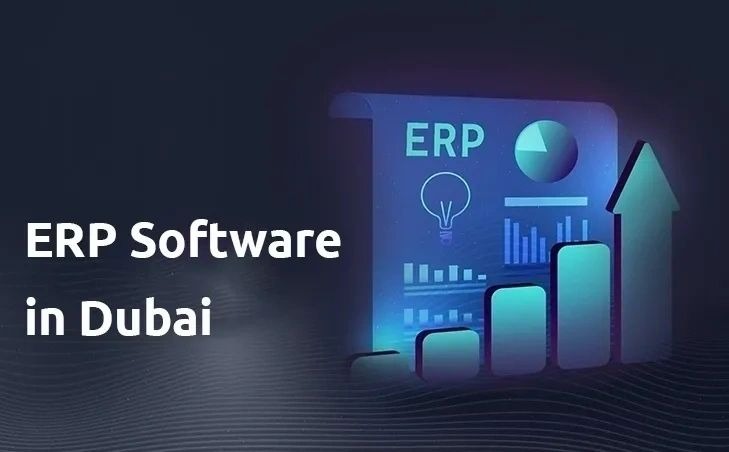🚀 Driving Efficiency with Supply Chain Management ERP Software
In today’s fast-paced global economy, businesses face increasing pressure to streamline operations, control costs, and deliver products faster. Among the most critical areas where efficiency is demanded is the supply chain. From raw material procurement to final product delivery, supply chain efficiency directly impacts profitability and customer satisfaction. One of the most transformative tools that businesses are embracing today is Supply Chain Management ERP Software.
This software empowers companies to centralize processes, improve visibility, and ensure seamless collaboration between departments. When integrated with modern business strategies, it not only reduces operational challenges but also enhances overall business agility.
Why Supply Chain Management ERP Software is Essential
Traditional supply chain operations often rely on manual tracking, spreadsheets, and disconnected systems. This leads to inefficiencies, delays, and lack of visibility. By adopting Supply Chain Management ERP Software, businesses can integrate procurement, warehousing, inventory management, logistics, and finance into a single centralized platform.
Key benefits include:
- 📊 Real-Time Visibility: Track inventory, shipments, and demand fluctuations instantly.
- 🔗 Process Integration: Eliminate silos by connecting procurement, production, and distribution.
- 📉 Cost Optimization: Reduce wastage, prevent stockouts, and minimize overproduction.
- 🚚 Faster Deliveries: Streamline order processing and logistics for timely deliveries.
- 📈 Data-Driven Decisions: Use analytics and forecasting for better planning.
This level of control enables businesses to stay competitive in an ever-changing market.
Role of Integrated ERP Software in Supply Chain
A powerful advantage of modern ERP systems is their ability to integrate seamlessly across all business functions. Integrated ERP Software goes beyond supply chain management—it connects finance, HR, sales, and customer service to create a unified system.
For example:
- When a sales order is placed, inventory levels are automatically updated.
- Procurement is triggered for raw materials if stock is low.
- Finance receives real-time updates on payables and receivables.
- Customers get accurate delivery timelines based on production capacity.
This interconnected workflow ensures that every department works with accurate, real-time data. As a result, businesses gain not just supply chain efficiency but also overall organizational synergy.
ERP Implementation in the Manufacturing Industry
The manufacturing sector is one of the biggest beneficiaries of ERP solutions. Implementing ERP systems allows manufacturers to balance demand forecasting, production planning, and inventory control while maintaining quality standards. Successful ERP Implementation in the Manufacturing Industry provides:
- ⚙️ Smarter Production Scheduling: Allocate resources efficiently and minimize downtime.
- 🏭 Improved Quality Control: Ensure compliance and traceability across production lines.
- 🛠️ Predictive Maintenance: Prevent equipment failures with data-driven maintenance alerts.
- 📦 Optimized Inventory Management: Balance raw material procurement with production demand.
- 💡 Faster Decision-Making: Real-time data helps leaders make proactive decisions.
In industries where even small inefficiencies can lead to major losses, ERP solutions serve as the backbone of operational excellence.
How Supply Chain ERP Enhances Business Growth
When businesses adopt Supply Chain Management ERP Software, they gain a competitive edge in multiple ways:
- Customer Satisfaction – Accurate order tracking and on-time deliveries enhance customer trust.
- Cost Reduction – Smarter resource allocation lowers operational costs.
- Scalability – ERP systems can grow with the business, accommodating new markets and products.
- Resilience – Businesses can respond quickly to market changes, supply disruptions, or demand fluctuations.
In short, ERP transforms supply chain management from a reactive process into a proactive, strategic function.
Future Trends in Supply Chain ERP
The future of ERP in supply chain management is powered by advanced technologies:
- Artificial Intelligence (AI): For predictive analytics and demand forecasting.
- Machine Learning (ML): To optimize logistics and warehouse operations.
- Internet of Things (IoT): Real-time monitoring of goods in transit.
- Cloud ERP: Enables remote accessibility and scalability.
- Blockchain Integration: Enhances supply chain transparency and security.
These trends will further strengthen the impact of ERP systems, making them indispensable tools for global businesses.
Conclusion: Building Smarter Businesses with ERP
In today’s highly competitive environment, businesses cannot afford inefficiencies in their supply chains. Adopting Supply Chain Management ERP Software ensures that companies streamline processes, reduce costs, and meet customer demands effectively. When combined with Integrated ERP Software and successful ERP Implementation in the Manufacturing Industry, organizations unlock higher efficiency, agility, and long-term growth.
For forward-thinking businesses, ERP is not just a tool—it is the foundation for digital transformation and sustained success.





Comments